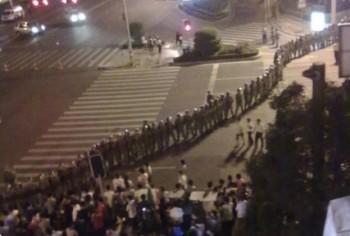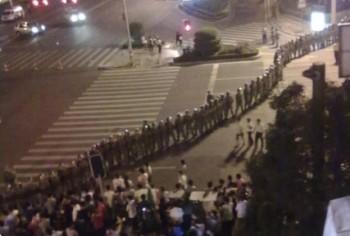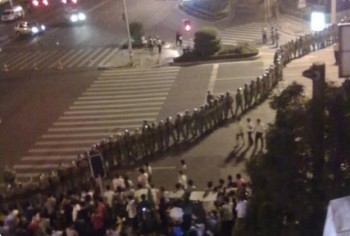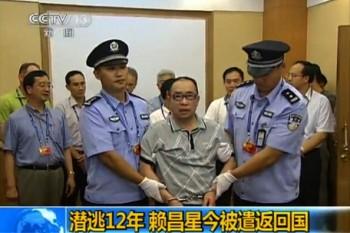Xiamen Taxi Drivers Hold Massive Strike
When thousands of taxi drivers in Xiamen in southern China’s Fujian Province went on strike on Oct. 6, the situation turned violent as striking drivers beat non-striking drivers and damaged their cars.

Local authorities dispatch over 1,000 police to the scene where taxi drivers staged a protest on the night of Oct. 6. Weobo.com
|Updated:





